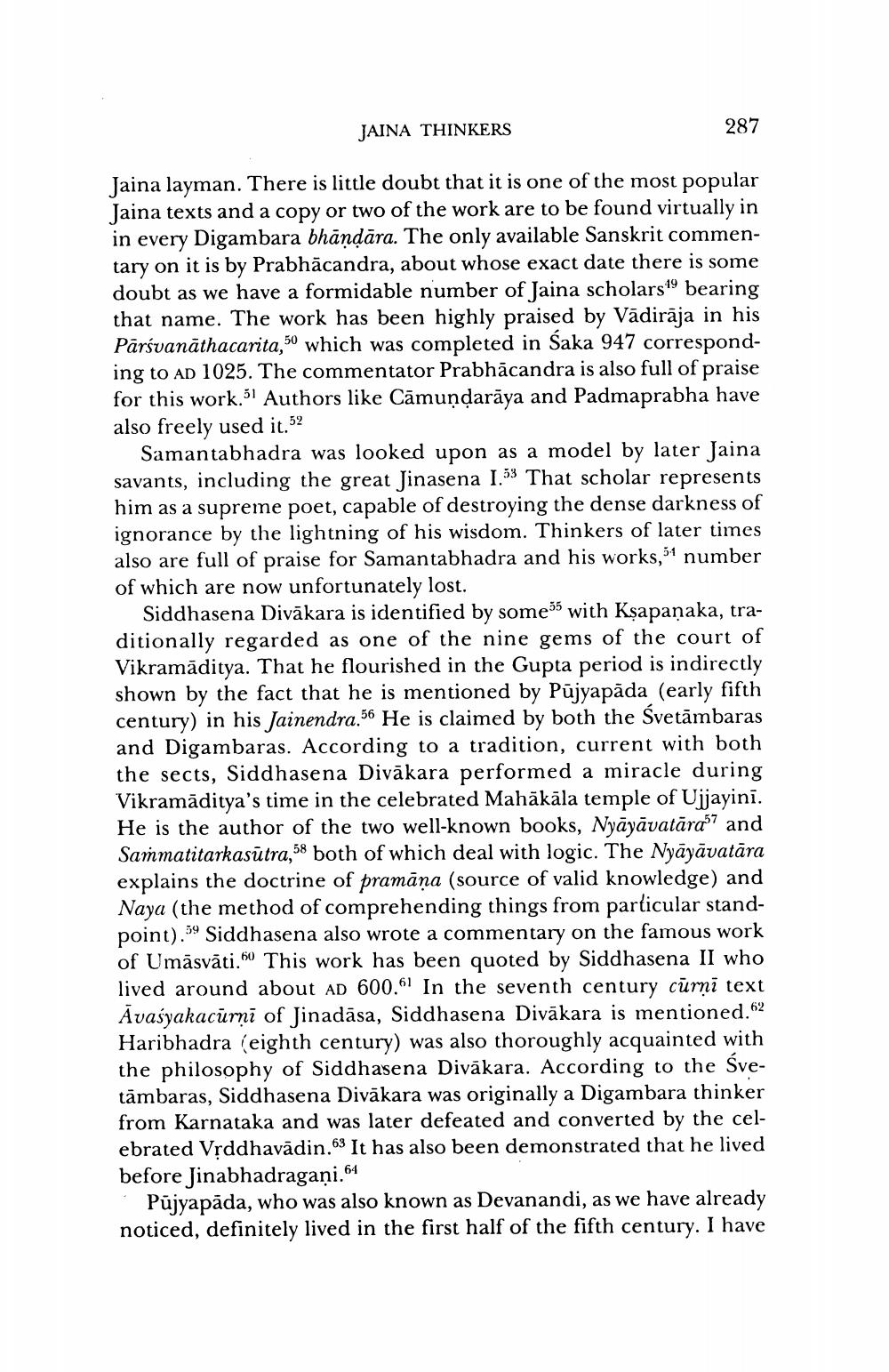________________
JAINA THINKERS
287
Jaina layman. There is little doubt that it is one of the most popular Jaina texts and a copy or two of the work are to be found virtually in in every Digambara bhāņdāra. The only available Sanskrit commentary on it is by Prabhācandra, about whose exact date there is some doubt as we have a formidable number of Jaina scholars bearing that name. The work has been highly praised by Vădirāja in his Pārsvanāthacarita, 50 which was completed in Saka 947 corresponding to ap 1025. The commentator Prabhācandra is also full of praise for this work." Authors like Cāmundarāya and Padmaprabha have also freely used it.52
Samantabhadra was looked upon as a model by later Jaina savants, including the great Jinasena 1.53 That scholar represents him as a supreme poet, capable of destroying the dense darkness of ignorance by the lightning of his wisdom. Thinkers of later times also are full of praise for Samantabhadra and his works, 51 number of which are now unfortunately lost.
Siddhasena Divākara is identified by some35 with Kșapanaka, traditionally regarded as one of the nine gems of the court of Vikramaditya. That he flourished in the Gupta period is indirectly shown by the fact that he is mentioned by Pujyapada (early fifth century) in his Jainendra.56 He is claimed by both the Svetāmbaras and Digambaras. According to a tradition, current with both the sects, Siddhasena Divākara performed a miracle during Vikramaditya's time in the celebrated Mahākāla temple of Ujjayini. He is the author of the two well-known books, Nyāyāvatāra and Sammatitarkasutra,58 both of which deal with logic. The Nyāyāvatāra explains the doctrine of pramāna (source of valid knowledge) and Naya (the method of comprehending things from particular standpoint).59 Siddhasena also wrote a commentary on the famous work of Umāsvāti.50 This work has been quoted by Siddhasena II who lived around about AD 600.61 In the seventh century cūrni text Āvasyakacūrņī of Jinadāsa, Siddhasena Divākara is mentioned. 62 Haribhadra eighth century) was also thoroughly acquainted with the philosophy of Siddhasena Divākara. According to the Svetāmbaras, Siddhasena Divākara was originally a Digambara thinker from Karnataka and was later defeated and converted by the celebrated Vrddhavādin.63 It has also been demonstrated that he lived before Jinabhadragani."
Pujyapāda, who was also known as Devanandi, as we have already noticed, definitely lived in the first half of the fifth century. I have




